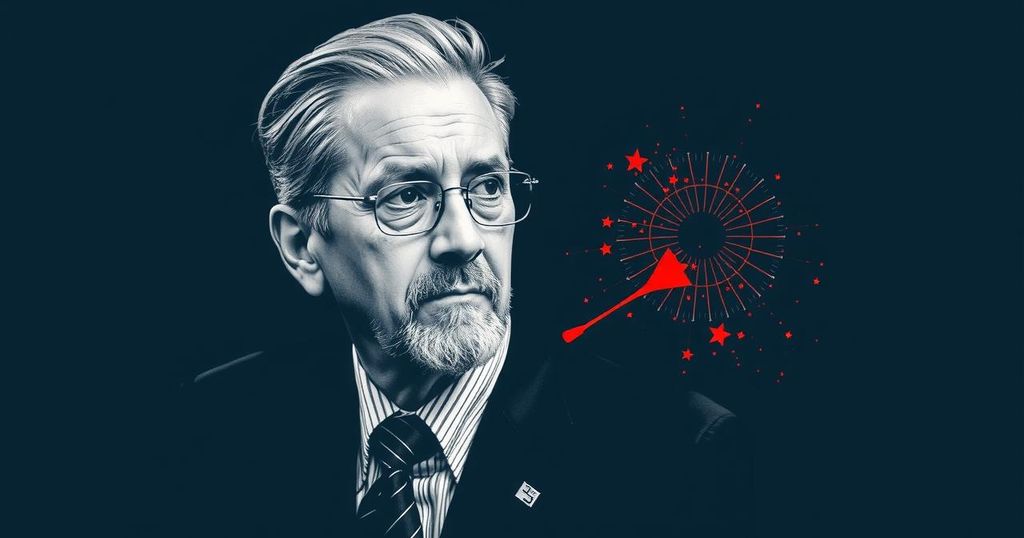Mike Waltz: Donald Trump’s National Security Advisor and the Impacts on India and China
Mike Waltz’s selection as national security advisor reflects a strategic pivot towards addressing challenges posed by China, particularly emphasizing military readiness in the Indo-Pacific. His role is poised to strengthen U.S.-India relations amid heightened tensions with China, suggesting a recalibration of U.S. foreign policy priorities.
Mike Waltz has been appointed as Donald Trump’s national security advisor, a decision that signals a robust shift in the U.S. strategic focus towards addressing the threats posed by China. Waltz’s advocacy for a boycott of the 2022 Winter Olympics in Beijing due to concerns over COVID-19 and human rights violations reflects his hard stance against the Chinese Communist Party. He argues that the U.S. must pivot its attention from traditional theaters in Europe and the Middle East towards the Indo-Pacific, emphasizing the need for heightened military readiness to deter possible aggression from China, particularly regarding Taiwan. Waltz’s experience in the military and strategic roles provides him with a foundation to influence U.S. foreign policy profoundly. His alignment with the India Caucus suggests that his appointment could fortify U.S.-India relations, crucial as India faces its own challenges with China. The timing is significant, as tensions along the Line of Actual Control prompt India to seek stronger defense and strategic partnerships with the United States. As a key figure in the Trump administration, Waltz’s perspectives are likely to result in increased military collaboration and diplomatic ties between India and the U.S. This proactive approach towards China may unsettle European allies, who are observing a potential pivot in U.S. foreign policy that prioritizes conflict handling with China over existing commitments to NATO. Waltz’s insights into strengthening the U.S. military and the defense-industrial base will be pivotal in building a more formidable presence in the Indo-Pacific region. The next phase of U.S. foreign policy will undoubtedly be shaped by Waltz’s actions, particularly in fostering military capabilities within the region. Such developments may include enhanced bilateral agreements, collaborative military exercises, and unified strategies with important partners like India and Australia under frameworks such as the Quad. As the geopolitical landscape evolves, NATO allies must critically evaluate their strategies in light of the shifting focus towards Asia.
The appointment of Mike Waltz as national security advisor under Donald Trump is indicative of an impending shift in U.S. foreign policy, particularly regarded as a reaction to the challenges posed by China. Waltz’s previous statements and writings reveal a commitment to increasing military readiness and pivoting strategic priorities towards the Indo-Pacific region, where both the U.S. and its allies, including India, face growing assertiveness from China. His influence is expected to solidify U.S.-India relations, especially amidst ongoing tensions stemming from border disputes with China that affect India’s security dynamics.
In conclusion, Mike Waltz’s appointment as national security advisor signals a decisive turn in U.S. foreign policy emphasizing military preparedness and strategic partnerships, particularly with India. His strong approach towards China aligns with the goals of bolstering Indo-U.S. ties and responding to rising tensions in the Indo-Pacific. While this move may unsettle NATO allies, it represents a significant recalibration of U.S. interests towards addressing the perceived threats from China.
Original Source: m.economictimes.com





Post Comment